By Majority Decision: This Whitehouse Makes Even the Supreme Court Fun
February 6, 2015
“I have done really well in his class because we’ve been able to engage in practical applications of stuff, which in history is unheard of because one thinks of history as being very black and white.”
Junior Gavin Gertz’s past view of history has obviously changed because of the assignments he’s encountered in Trinity teacher Mr. Parker Whitehouse’s Advanced Program United States history class.
One such unique assignment involved influential Supreme Court cases. Students were asked to create a short, documentary-style film that illustrated the events that went on during the case, as well as the repercussions that came after a decision was made. Most of the films included a comedic factor. After the videos were turned in, the class held a festival encompassing the best films.
Whitehouse said the main purpose of the film festival was to make the assignment interesting as well as fun.
“I wanted to do something that was different from what most students had seen before,” he said. “I wanted to do an assignment that was enjoyable to make, not only for the group but for everyone.”
Originally from Owensboro, Whitehouse taught at Lexington’s Paul Laurence Dunbar before coming to Trinity.
Of his first year at Trinity, Whitehouse said, “It’s been difficult for sure, harder than I expected, but that has nothing to do with the school and more with the load of classes I took on this year — and the expectations I set for myself as well as the expectations that come with a school like Trinity.”
Whitehouse, having always taught United States history, loves it and enjoys discussion-based classes. He said, “The depth of discussion the class can have is phenomenal. Knowing that I can walk into the room and have an incredible discussion just based on talking points is great.”
Seeing the look on the students’ faces when they realized they knew the information well — and enjoyed doing it — was the best part of the assignment.
— Trinity teacher Mr. Parker Whitehouse

Gertz said, “My ideas are respected, and I think that comes from Mr. Whitehouse being closer to our age.”
Whitehouse implemented a grading system in his classes that is solely based on students retaining the content.
Junior Nolan Riley said he likes the system: “He gives us other opportunities to make up work, like writing comic strips, newsletters and even creating videos to make sure (we) understand the content.”
The Supreme Court video assignment involved a division of work between students. In each group of four, many groups divided up the research between three of the students while the fourth created and edited the video. While the producer of the video did not do much researching of content, he learned the information by wading through the material the researchers found and then putting it in the video.
Gertz said, “I really didn’t have much interaction with the material, but I had to sit there for a couple of hours to create the video. I learned the material by working with it and putting it into chronological order.”
At the end of the film festival, awards were given to the best videos. Gertz and his group — winners of the Quentin Tarantino, I Have No Idea What I Just Watched But I Think I loved It Award — said of the honor, “I still have it framed in my room next to all my other awards.”
Junior Braden Barnett and his group took home the Steven Spielberg Best in Show Award. Barnett said, “I like how we are focused on learning the material and learning it until we get it right.”
Whitehouse was pleased with his students’ reactions to the Supreme Court research and videos. He said, “Seeing the look on the students’ faces when they realized they knew the information well — and enjoyed doing it — was the best part of the assignment.”
Check out some of the students’ videos:


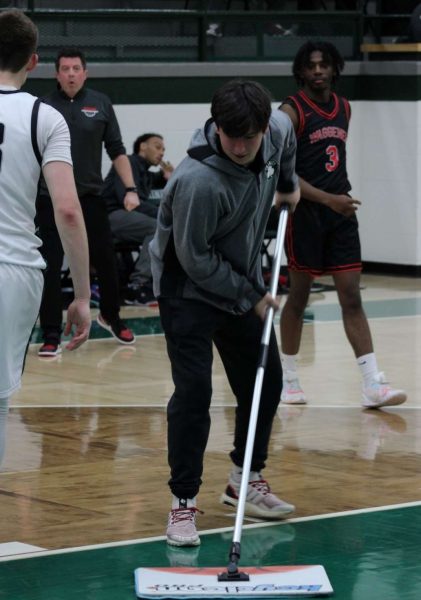

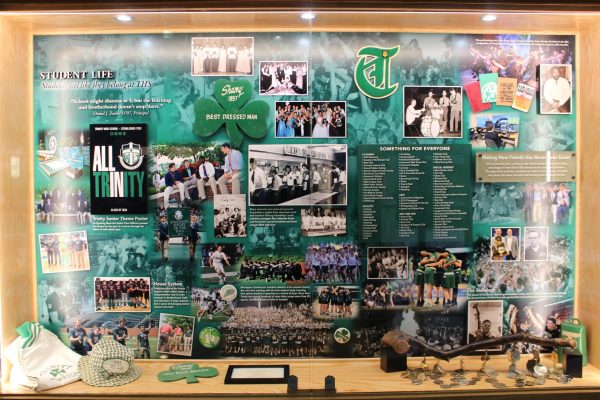

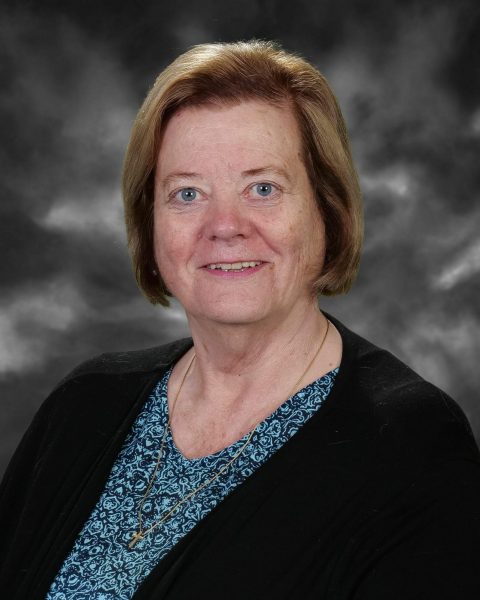
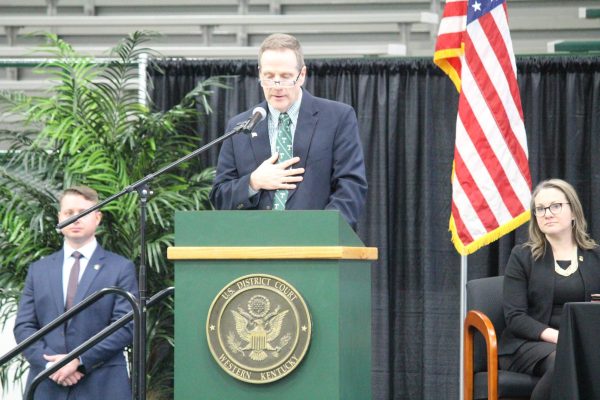
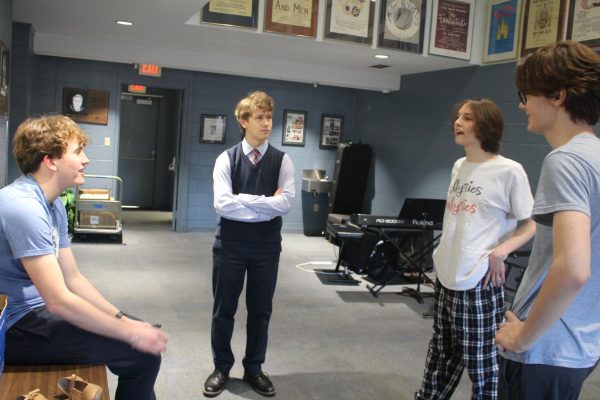

Chris Ward • Feb 7, 2015 at 1:45 pm
Mr. Whitehouse is one of the best teachers I’ve ever had the opportunity of learning from. He allows us to experience what happened in history while giving us the chance to express our own opinions and respects what we have to say.